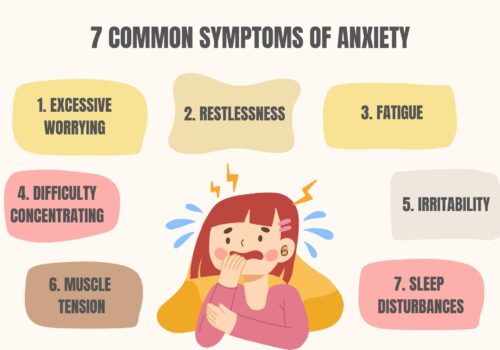Religious or spiritual communities can provide a sense of belonging, purpose, and comfort for many individuals. However, not all religious groups are benign or nurturing. Cults, by their very nature, often manipulate and exploit their members, leaving deep scars that can affect survivors long after they’ve left the cult. The psychological and emotional issues faced by individuals who grow up in a cult are unique and complex. In this article, we will explore 10 of these issues, shedding light on the enduring impact of religious trauma.
1. Identity Crisis
Growing up in a cult environment means that your identity is often shaped by the group’s beliefs, values, and expectations. Cult leaders typically enforce a rigid sense of self that revolves around the cult’s ideology. This leaves survivors with a profound identity crisis when they leave the cult. They may struggle to define who they are outside of the cult, leading to a profound sense of confusion and loss of self.
2. Trust Issues
Cults often manipulate their members through deceit and mind-control techniques. Survivors may develop profound trust issues, making it challenging to form authentic connections with others, including spouses and even children. They may be constantly on guard, fearing that those around them will try to manipulate or control them.
3. Guilt and Shame
Cults often use guilt and shame as powerful tools to control their members. Survivors may carry a heavy burden of guilt and shame for their past involvement in the cult, even if they were born into it. Overcoming this guilt and shame is a significant psychological hurdle on the path to healing.
4. Isolation
Cults typically discourage or forbid contact with the outside world, isolating their members from friends and family who could provide emotional support and a sense of normalcy. This isolation can leave survivors feeling disconnected and alienated, even after they leave the cult. When survivors leave a cult, they often experience mandatory or co-erced shunning by family and other members of the group.
5. Fear of Authority
Cults typically maintain a strict hierarchy of authority, with the cult leader often positioned as an infallible figure. Survivors may carry a deep-seated fear of authority figures, making it difficult for them to trust or seek help from others, including therapists or support groups.
6. Cognitive Dissonance
Cult members often experience cognitive dissonance, a mental conflict between their cult’s teachings and reality. Survivors may still grapple with this conflict, causing stress and confusion when they confront beliefs they once held dear.
7. Post-Traumatic Stress Disorder (PTSD)
Survivors of cults often experience symptoms of PTSD due to the physical, emotional, and psychological abuse they endure. Nightmares, flashbacks, and heightened anxiety can persist long after leaving the cult.
8. Boundary Issues
Cults violate personal boundaries, often demanding extreme loyalty and obedience. Survivors may struggle to establish and maintain healthy boundaries, both in personal relationships and in other areas of their lives.
9. Reintegration Challenges
Reintegrating into mainstream society after leaving a cult can be extremely challenging. Survivors may find it difficult to adapt to new social norms, navigate everyday responsibilities, and make life choices that were restricted in the cult environment.
10. Loss of Faith
Many survivors lose faith in their religious or spiritual beliefs altogether after leaving a cult. This loss can be particularly painful for those who were raised in a religious context, as it may involve questioning the very foundation of their upbringing.
Recovery and Healing
It’s essential to understand that recovery from cult involvement is a complex and ongoing process. Survivors need support, understanding, and professional help to address these psychological and emotional issues effectively. This is particularly complex if the cult victim was born into the group. Here are some steps that can aid in the healing process:
1. Professional Help: A therapist who specializes in cult recovery or religious trauma can provide tailored support and guidance throughout the healing journey.
2. Support Groups: Joining support groups for cult survivors can provide a sense of community and understanding from people who’ve had similar experiences. Sharing and listening will allow you to help process your own experience.
3. Create a social network: Building relationships is vital to replace the family and friends who may have shunned you after leaving the high-control religion. This is a crucial step that must be taken to regain a sense of belonging and support. If it feels overwhelming, just start by making friends with one person and building outward at your pace.
4. Self-Care and Self-Discovery: We are kept busy in cults for a reason. Part of that reason is to put you and your interests aside. Intentionally practicing self-care, exploring personal interests, and rediscovering one’s identity outside of the cult are vital for moving forward.
5. Education and Awareness: It can be triggering learning about what we experienced. Learning about cult dynamics, mind control, and manipulation are necessary to help survivors make sense of their experiences and take back their power. Listen to those who oppose and those who are challenging the high control group. Hearing from both sides puts the power of choice back in your hands.
Survivors of cults face a range of complex psychological and emotional challenges long after leaving the group. It’s important to acknowledge that by addressing these issues through both self and guided therapy, survivors are able to heal and rebuild their lives. By understanding the lasting impact of cult involvement and providing a safe and empathetic space for survivors to share their stories, counselors help them on their path to recovery and emotional well-being.
















